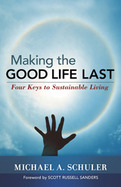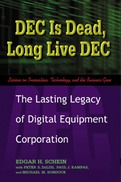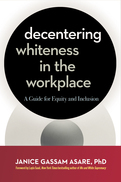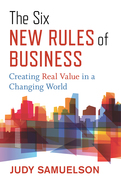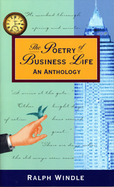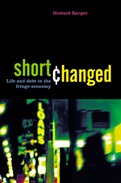Shows that sustainability, a concept usually associated exclusively with environmentalism, is the key to a truly fulfilling personal life
Filled with practical advice as well as thoughtful reflections
Illustrated with stories of Schuler's own efforts not always successful to live a sustainable life, as well as insights from science, literature, and a range of spiritual traditions
So many of us are beset by anxiety, depression, loneliness, and spiritual malaise, tense and unhappy despite our gadgets and goodies. Michael Schuler, leader of the nation's largest Unitarian Universalist congregation, says it's because, urged on by an aggressively materialist culture, we too often opt for short-term gratification and long-term denial. In this thoughtful and deeply honest book, he helps us find a life path that leads to treasures of perennial value: a beautiful and healthy earth home, enduring relationships, strong communities, work that contributes to the common good, and play that restores our bodies and lifts our souls.
Deconstructing the assumption that consumption, stimulation, and constant motion comprise the good life, Schuler urges the wholesale embrace of sustainability as both an operational principle and a life-sustaining core value. His book presents sustainability as a coherent frame of reference that can ground us spiritually, heal us internally, and deepen our relationships. Schuler identifies four behavioral principles for living sustainably Pay Attention, Stay Put, Exercise Patience, and Practice Prudence and shows how to apply them in our daily lives. He uses stories from his own life to illuminate the rewards and challenges of sustainable living and shares insights from environmentalists, social commentators, writers, poets, businesspeople, and spiritual leaders.
Sustainability means more than mere survival for individuals, just as for natural and social systems, it's the key to thriving rather than burning out. For those seeking a more profoundly satisfying way of life, Schuler's heartfelt explorations offer a counter intuitive answer: the sustainable life is the good life.
Edgar Schein consulted to DEC throughout its history and so had unparalleled access to all the major players, and an inside view of all the major events. He shows how the unique organizational culture established by DEC's founder, Ken Olsen, gave the company important competitive advantages in its early years, but later became a hindrance and ultimately led to the company's downfall. Schein, Kampas, DeLisi, and Sonduck explain in detail how a particular culture can become so embedded that an organization is unable to adapt to changing circumstances even though it sees the need very clearly.
The essential elements of DEC's culture are still visible in many other organizations today, and most former employees are so positive about their days at DEC that they attempt to reproduce its culture in their current work situations. In the era of post-dot.com meltdown, raging debate about companies "built to last" vs. "built to sell," and more entrepreneurial startups than ever, the rise and fall of DEC is the ultimate case study.
• Edgar Schein is one of the founders of the organization development field, a widely respected scholar and a bestselling author
• Shows how the unique culture of DEC was responsible both for its early rise and for its ultimate downfall-a real-life classical tragedy
• Schein was a high-level consultant to DEC throughout its history, with unparalleled access to the company's story as it unfolded over the course of four decades
DEC Is Dead, Long Live DEC tells the 40-year story of the creation, demise, and enduring legacy of one of the pioneering companies of the computer age. Digital Equipment Corporation created the minicomputer, networking, the concept of distributed computing, speech recognition, and other major innovations. It was the number two computer maker behind IBM. Yet it ultimately failed as a business and was sold to Compaq Corporation. What happened?
Edgar Schein consulted to DEC throughout its history and so had unparalleled access to all the major players, and an inside view of all the major events. He shows how the unique organizational culture established by DEC's founder, Ken Olsen, gave the company important competitive advantages in its early years, but later became a hindrance and ultimately led to the company's downfall. Schein, Kampas, DeLisi, and Sonduck explain in detail how a particular culture can become so embedded that an organization is unable to adapt to changing circumstances even though it sees the need very clearly.
The essential elements of DEC's culture are still visible in many other organizations today, and most former employees are so positive about their days at DEC that they attempt to reproduce its culture in their current work situations. In the era of post-dot.com meltdown, raging debate about companies "built to last" vs. "built to sell," and more entrepreneurial startups than ever, the rise and fall of DEC is the ultimate case study.
Corporate America continues to struggle with racial equity in a post-George Floyd world. As the United States becomes more diverse and the public consciousness continues to shift, successful racial equity efforts in the workplace are needed now more than ever.
Decentering Whiteness in the Workplace exposes the ways that white culture and expectations are centered in the modern American workplace and the fears within corporate spaces about talking candidly, openly, and honestly about whiteness, white supremacy, and anti-Blackness.
Readers will discover:
- A direct and straightforward analysis about what white-centering is
- An evaluation of the different ways that whiteness is centered in the workplace, such as bereavement and holiday policies and dress codes
- A guide on how to recognize and decenter whiteness within oneself and at work
- Solutions for people to contribute individually and systemically to anti-oppression
Dynamic forces are conspiring to clarify the new rules of real value creation—and to put the old rules to rest. Internet-powered transparency, more powerful worker voice, the decline in importance of capital, and the complexity of global supply chains in the face of planetary limits all define the new landscape. As executive director of the Aspen Institute Business and Society Program, Judy Samuelson has a unique vantage point from which to engage business decision makers and identify the forces that are moving the needle in both boardrooms and business classrooms.
Samuelson lays out how hard-to-measure intangibles like reputation, trust, and loyalty are imposing new ways to assess risk and opportunity in investment and asset management. She argues that “maximizing shareholder value” has never been the sole objective of effective businesses while observing that shareholder theory and the practices that keep it in place continue to lose power in both business and the public square. In our globalized era, she demonstrates how expectations of corporations are set far beyond the company gates—and why employees are both the best allies of the business and the new accountability mechanism, more so than consumers or investors.
Samuelson's new rules offer a powerful guide to how businesses are changing today—and what is needed to succeed in tomorrow's economic and social landscape.
Love, death, religion, relationships-these subjects typically inspire collections of poetry. But business? Most people think of business and poetry as two separate and incompatible areas of life.
In February 1991, Alan Farnham expressed this common belief when he wrote in Fortune Magazine, "Not many people in business feel an urge to write verse about their work." Challenged by this statement, Ralph Windle began a three-year search for the poetry of business life-and found a profusion of verse exploring all aspects of business.
The author's research revealed that not only is there a large body of business poetry in existence today, but business has been the subject of poems since the invention of the written word. The poems in this collection range from early "agribusiness" to the ever-present entrepreneur, merchant, banker, and-with the coming of the industrial age-the worker and manager; right up to twentieth-century concerns with global travel, technology, and the complexities of office life. Included are the works of more than seventy poets, and twice that many pieces. Young, unpublished "business poets" rub elbows with widely published contemporary writers such as James Autry, Harry Newman, and Dana Gioia, as well as some of the most distinguished names in poetic literature-including Shakespeare, Chaucer, Tennyson, and Kipling.
With poems that cover a wide variety of topics and professions-from David Alpaugh's "A California Adman Celebrates His Art" to Richard Ellis Roberts' "Overheard at the Literary Party"; from Constance Alexander's "Outplacement Blues" to Bertie Ramsbottom's "Death By Merger"-this anthology offers something for every reader.
In an age when most people spend the majority of their waking lives involved in some kind of business, it seems natural that poetry, which is the essence of human emotional records, would be affected by business concerns. Business, writes the author, "now touches all our lives and consumes, for ever growing numbers of us, our work, time, energies and passions. Yet few, it is supposed, could find inspiration in its banalities." The size and scope of The Poetry of Business Life easily prove this supposition wrong. Many contemporary business people write verse about their experiences-serious and humorous-as they seek an outlet for their creativity. Business people and their organizations mutually gain from this expression by sending signals to the world that human sensitivities are highly compatible with effective business performance. Humor, insight, sadness, wisdom, and anger are all represented in this unique collection and offer a dynamic, living picture to all people in organizations, their families, and the wider professions as well. Business speech-writers, too, will find in it a rich treasure-trove of choice quotations.
- A unique collection of voices, this anthology brings together, for the first time, poems by contemporary corporate people and more recognized literary figures in and around the expanding world of business.
- Over seventy writers bring fresh insights into the corporate life we know, with evocative glimpses of its origins-back to the Greek poets of 500 B.C.
2005
-
Chronicles how fringe economy businesses ruthlessly and systematically exploit the poor and the middle classes
-
Feature dozens of personal stories from individuals whose lives have been ruined by participating in this fringe economy
-
Includes hard-headed, practical recommendations for reforming fringe economy business practices


